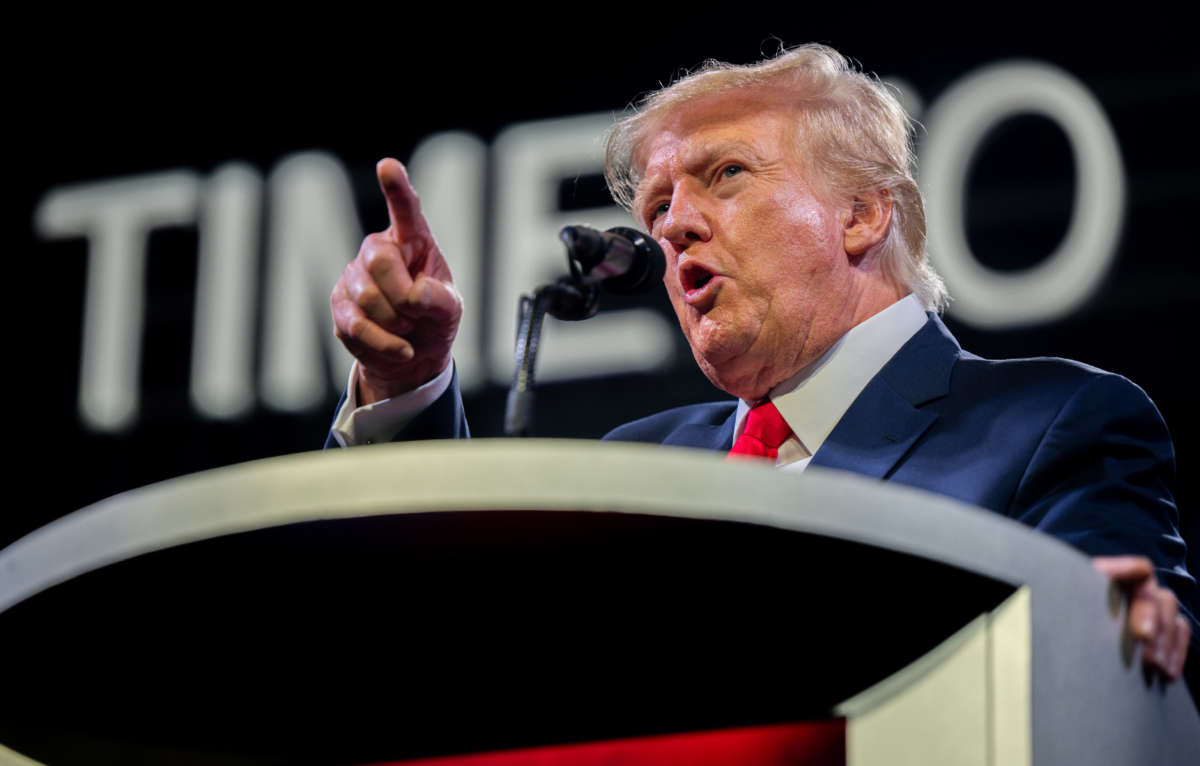One of former President Donald Trump’s lawyers refused his request in February to say that he had returned all of the documents taken to Mar-a-Lago, according to The Washington Post.
Trump in February asked attorney Alex Cannon to tell the National Archives and Records Administration that all of the documents had been returned. Cannon refused the request because “he was not sure that statement was true,” sources told the Post. The FBI ultimately found thousands more documents when they searched Trump’s residence in August as part of a criminal investigation into the potential mishandling of classified documents and obstruction.
Cannon “facilitated” the transfer of 15 boxes of documents to the National Archives earlier this year after officials demanded for over a year for the return of “all original presidential records” as required by law. National Archives officials threatened to get the Justice Department or Congress involved, according to the report.
Trump packed the boxes himself, a source told the Post, and “seemed determined” in February to declare that all documents had been returned. Trump told his team to release a public statement declaring that he had returned “everything” and asked Cannon to make a similar statement to the National Archives. Cannon, who worked as an attorney for the Trump Organization and later the Trump campaign before representing him after he left the White House, refused the request, according to the report.
Cannon told others that he was “not sure” if there may be additional documents and that he would be “uncomfortable” making such a claim, according to the Post. Other Trump advisers also encouraged him not to make such a statement. Trump’s team ultimately did not release the public statement either, instead releasing a different message three days later saying that the materials were turned over in a “friendly” manner without saying that “everything” had been returned.
“The papers were given easily and without conflict and on a very friendly basis, which is different from the accounts being drawn up by the Fake News Media,” Trump said at the time.
Legal experts said the report could be trouble for Trump.
“DOJ case for obstruction against Trump (18 USC 1519) just got a lot stronger,” tweeted Ryan Goodman, a New York University law professor.
“More evidence of willful retention and concealment,” wrote national security attorney Bradley Moss.
“Open and shut,” tweeted conservative attorney George Conway.
Cannon’s refusal to make the statement “soured his relationship” with Trump, for whom he had worked since 2015, and he was shut out of further discussions about the matter, according to the Post.
The DOJ ultimately found more evidence that there were additional documents at Mar-a-Lago and in May obtained a grand jury subpoena seeking all documents marked classified. Trump lawyer Evan Corcoran, who replaced Cannon, told the DOJ that he had returned all classified material and fellow Trump lawyer Christina Bobb signed a document affirming that she was advised that all the documents were returned.
The FBI ultimately obtained a warrant to search the premises and found thousands more documents. Bobb has since retained her own attorney and colleagues have reportedly urged Corcoran to do the same, citing their legal vulnerability after making the statements to the DOJ.
Cannon’s “decision not to lie on Trump’s behalf appears to be one of the only smart decisions made by his legal team this year,” tweeted former federal prosecutor Renato Mariotti.
Mariotti said that Trump’s request for his lawyer to “lie” to the National Archives is “a crime if done knowingly and willfully.”
“More likely it will be used by DOJ to show an intent to hide and deceive. Would be a factor in favor of indictment and would be featured at trial,” he wrote.
“If this reporting holds up,” wrote former U.S. Attorney Joyce Vance White, “his conduct would have been so egregious that DOJ will have to indict to maintain the rule of law — anyone else would be indicted, he must be too.”
Our most important fundraising appeal of the year
December is the most critical time of year for Truthout, because our nonprofit news is funded almost entirely by individual donations from readers like you. So before you navigate away, we ask that you take just a second to support Truthout with a tax-deductible donation.
This year is a little different. We are up against a far-reaching, wide-scale attack on press freedom coming from the Trump administration. 2025 was a year of frightening censorship, news industry corporate consolidation, and worsening financial conditions for progressive nonprofits across the board.
We can only resist Trump’s agenda by cultivating a strong base of support. The right-wing mediasphere is funded comfortably by billionaire owners and venture capitalist philanthropists. At Truthout, we have you.
We’ve set an ambitious target for our year-end campaign — a goal of $250,000 to keep up our fight against authoritarianism in 2026. Please take a meaningful action in this fight: make a one-time or monthly donation to Truthout before December 31. If you have the means, please dig deep.
